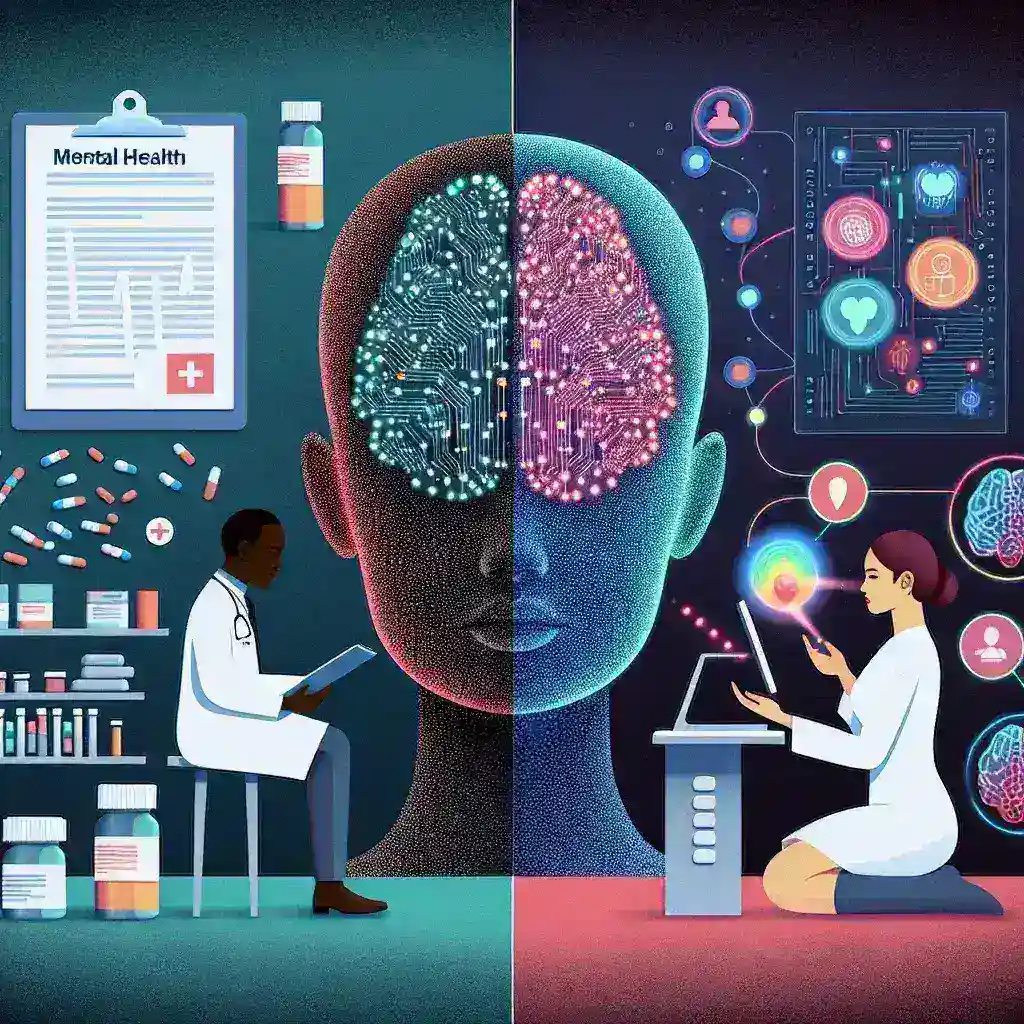Introduction
The intersection of artificial intelligence (AI) and mental health is becoming increasingly significant in today’s world. As mental health issues continue to rise globally, there emerges a pressing need for innovative solutions that can improve diagnosis, treatment, and patient outcomes. This article explores the impact of AI on mental health diagnosis and treatment, examining its potential benefits, challenges, and future directions.
Understanding AI in Mental Health
AI encompasses a broad range of technologies, including machine learning, natural language processing, and data analytics, all of which can be leveraged to enhance mental health services. By utilizing vast amounts of data from various sources, AI systems can identify patterns and provide insights that were previously unattainable.
Key Areas of AI Application in Mental Health
- Diagnosis: AI can analyze data from patient records, social media activity, and other digital footprints to aid clinicians in diagnosing mental health disorders more accurately.
- Personalized Treatment: AI algorithms can help tailor treatment plans by analyzing individual patient data, leading to more effective outcomes.
- Monitoring and Support: AI-powered apps can provide ongoing support and monitoring for patients, alerting healthcare professionals of any concerning changes in behavior.
The Role of AI in Diagnosis
Traditionally, mental health diagnosis has relied heavily on subjective assessments conducted by healthcare professionals. AI introduces an objective layer that can enhance these assessments significantly.
Data Analysis for Accurate Diagnosis
AI systems can process large datasets, recognizing patterns that indicate specific mental health conditions. For instance:
- Machine Learning: Machine learning algorithms can analyze speech patterns, texts, and even facial expressions to identify markers of mental health disorders, such as depression, anxiety, or PTSD.
- Predictive Analytics: By considering historical data, AI can predict potential mental health issues before they manifest, offering preventive care opportunities.
AI in Treatment Approaches
The treatment landscape for mental health is evolving with the integration of AI technologies. Here’s how AI is reshaping various treatment modalities:
Chatbots and Virtual Therapists
AI-powered chatbots can provide immediate support and counseling for individuals in crisis. These chatbots use natural language processing to understand the needs of users and respond appropriately.
- Accessibility: Chatbots make mental health resources accessible 24/7, allowing individuals to seek help at any time.
- Anonymity: Many users feel more comfortable discussing their issues with an AI rather than a human, reducing stigma.
Data-Driven Personalized Therapy
AI can analyze treatment responses and patient data, allowing therapists to adjust treatment plans in real-time based on what is working for the patient. This dynamic approach leads to more personalized and effective therapy experiences.
Benefits of AI in Mental Health
Improved Accessibility
AI technologies have the potential to bridge gaps in mental health care access. Remote areas and underserved populations can benefit significantly from AI-driven tools that offer diagnostic and treatment support without the need for a local professional.
Cost Efficiency
The implementation of AI can lead to reduced costs for both healthcare providers and patients. Automated systems can lower administrative costs and reduce the burden on mental health professionals, enabling them to focus on direct patient care.
Enhanced Patient Engagement
AI tools encourage patients to take an active role in their mental health journey. For instance, therapy apps equipped with AI can engage users with personalized exercises, mood tracking, and self-help strategies.
Challenges of Implementing AI in Mental Health
Ethical Considerations
The integration of AI into mental health care raises ethical concerns surrounding privacy, data security, and consent. Ensuring the confidentiality of sensitive patient data is crucial.
Bias and Inequity
AI systems can reflect existing biases in the data they are trained on, leading to inequitable treatment recommendations. It’s essential to ensure that diverse populations are represented in data used to develop AI solutions.
Human Connection
One of the most important aspects of mental health treatment is the human connection between therapist and patient. While AI can augment treatment, it cannot replace the empathy and understanding that a human therapist provides.
Future Directions of AI in Mental Health
As technology continues to advance, the future of AI in mental health looks promising. Ongoing research and development aim to enhance the capabilities of AI systems, leading to:
- Integration with Wearable Technologies: The future will likely see more integration between AI and wearable devices that monitor physiological symptoms, providing real-time data to clinicians.
- Collaborative AI Systems: Combining human expertise with AI analysis could enhance diagnostic and treatment accuracy.
- Global Mental Health Solutions: AI has the potential to provide mental health support on a global scale, addressing disparities in care across various regions.
Conclusion
The impact of AI on mental health diagnosis and treatment is profound and multifaceted. From enhancing diagnostic accuracy to enabling personalized treatment approaches, AI has the potential to revolutionize mental health care. However, it is crucial to navigate the accompanying challenges with care, ensuring ethical practices to safeguard patient well-being. As we look to the future, the collaboration between AI technologies and mental health professionals will undoubtedly pave the way for innovative solutions that prioritize mental health support for everyone.

